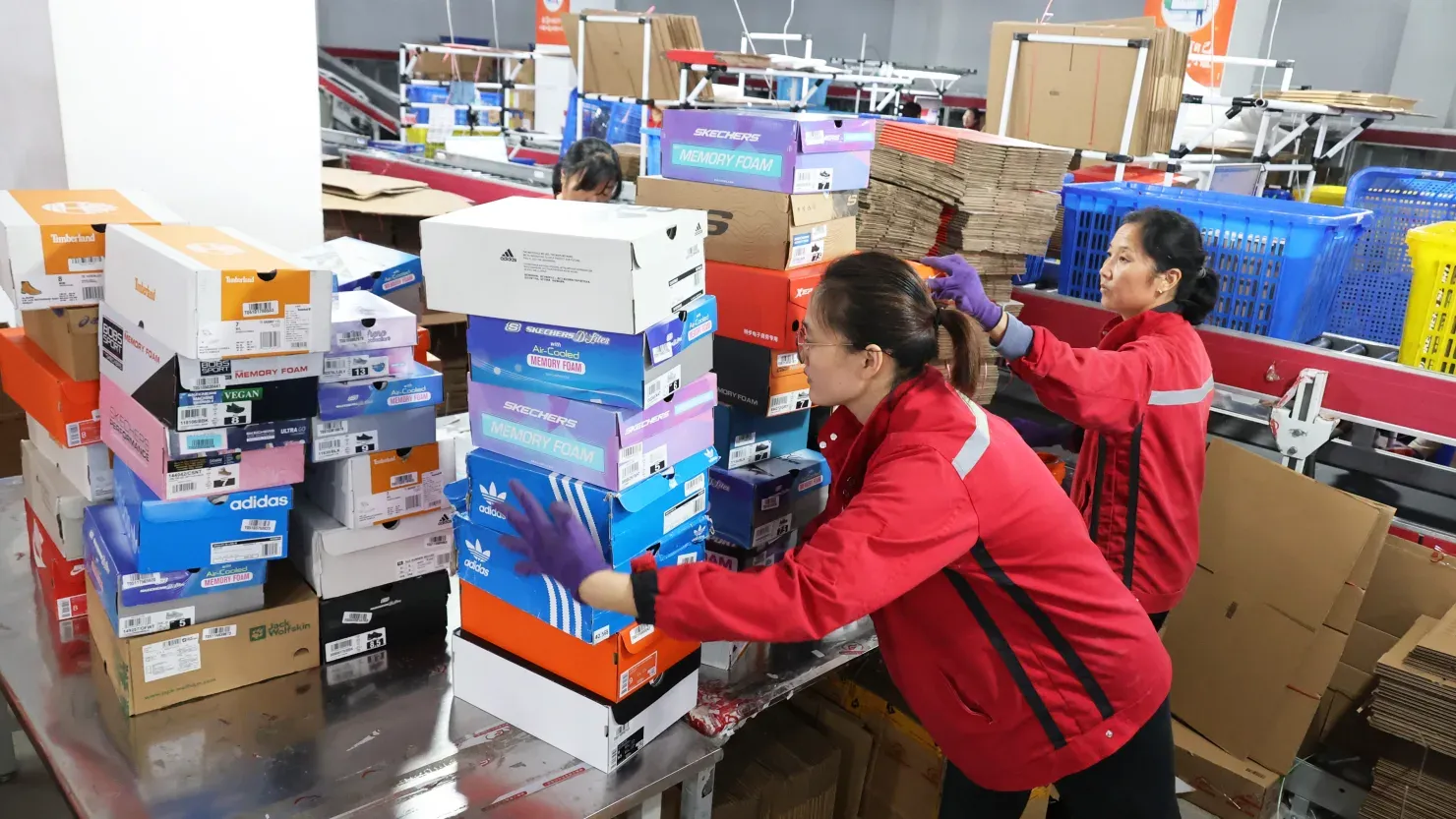Early indications from China’s largest shopping event, Singles Day, reveal a surge in sales in select categories amid expectations for relatively modest growth overall.
 |
| Vcg | Visual China Group | Getty Images |
Singles Day, China’s answer to Black Friday, began on October 14, starting more than a week earlier than last year as major e-commerce platforms Alibaba and JD.com contend with a challenging consumer spending environment.
Since Alibaba introduced the festival on November 11, 2008, the event has grown from a single day to a weeks-long celebration of discounts and promotions.
Jacob Cooke, co-founder and CEO of WPIC Marketing + Technologies, a firm that aids international brands like Vitamix and IS Clinical in selling online across China and Asia, shared insights with CNBC: “We’re anticipating slightly better growth in GMV [gross merchandise value] compared to last year.” GMV, which represents the total sales value, is a key performance metric in the e-commerce sector.
During the pandemic in 2022, China’s e-commerce giants ceased reporting Singles Day GMV figures, but in 2021, Alibaba reported an 8% increase, and JD.com reported a 28% jump, with both companies collectively reaching over $139 billion.
As of October 30, this year’s GMV had reached 845 billion yuan (about $119.1 billion), according to research firm Syntun. Of this amount, roughly $95 billion—or 80%—was generated by Alibaba, JD.com, and PDD, with nearly 20% coming from livestreaming sales on platforms like Kuaishou and ByteDance’s Douyin. Cooke anticipates around 15% growth for Singles Day this year, slightly above last year’s 11% increase, as per WPIC’s data.
Consumer behavior during this shopping season has shifted, with growing interest in experiential and fitness-focused products over high-end luxury. Cooke noted, “We’re seeing experiential-based categories thriving—think less Louis Vuitton, more lululemon—as consumer habits continue to change.”
China’s recent subsidy initiatives have helped boost appliance sales this Singles Day. Since July, the Chinese government has offered subsidies for home appliance trade-ins, and additional economic stimulus measures, like reduced mortgage rates, were rolled out in September.
Analysts at UOB Kay Hian predict these government-backed efforts will support growth in appliance sales, projecting a 4% to 5% GMV increase this season. Alibaba noted that government and platform benefits drove a sevenfold increase in home appliance presales within the first hour of Singles Day on October 14, compared to last year.
Meanwhile, JD.com reported double-digit growth in transaction volumes between October 14 and October 31, achieving record sales in consumer electronics and home appliances.
Dave Xie, a partner at consultancy Oliver Wyman, commented on the calmer pricing dynamics this year: “The intense price competition seen previously among e-commerce platforms has eased, with a more rational approach emerging. This shift has aligned well with Beijing’s stimulus policies and a general improvement in consumer sentiment.”
Certain categories have seen especially strong performance in the early stages of Singles Day, including home appliances, consumer electronics, outdoor gear, beauty products, and pet supplies.
This year, a notable trend has emerged in toys and collectibles, especially products based on intellectual property (IP) from popular games and animated series. These items have become highly sought after by Chinese consumers, with international brands competing for licensing rights to tap into this demand.
Cooke highlighted this as the "micro trend" for Singles Day 2023, adding, “This category has grown from relatively obscure to unexpectedly popular in a short time.”
Alibaba’s Tmall marketplace has launched more than 100,000 IP-based products, featuring over 1,000 characters from games like Genshin Impact and Arknights. These products include collectible items like cards, figurines, and clothing.
Among the IP-based items is a $50 Valentine’s Day plush dog from British toy company Jellycat, which sold out in seconds, according to Yuke Liang, a Tmall representative. Liang also noted the popularity of a limited-edition plush character from Japanese manga Chiikawa, which drew over 100,000 simultaneous orders.
Taobao and Tmall have been nurturing the IP product category since 2017, promoting it as a top priority in 2021. The category’s growth has been driven by young consumers, mostly in their early thirties or younger, who prioritize products that bring joy and emotional satisfaction.
Despite pockets of success, the overall tone of Singles Day remains more subdued than in past years. “The consumer mood is markedly different this year—much calmer,” wrote Ashley Dudarenok, founder of China marketing consultancy ChoZan.
“Chinese consumers are more selective, focusing on higher-value purchases that meet actual needs rather than buying simply for discounts.” Dudarenok expects the holiday season to see modest improvement, propelled by diverse product categories.
Singles Day sales officially conclude on November 11, and many observers have tempered their outlook. James Yang, head of Greater China retail at Bain & Company, commented that the firm has “muted expectations” for the event this year, continuing a downtrend seen over the past two years.
JD.com and Alibaba are scheduled to release their quarterly earnings on November 14 and November 15, respectively, providing further insights into the financial impact of Singles Day 2023.

0 Comments